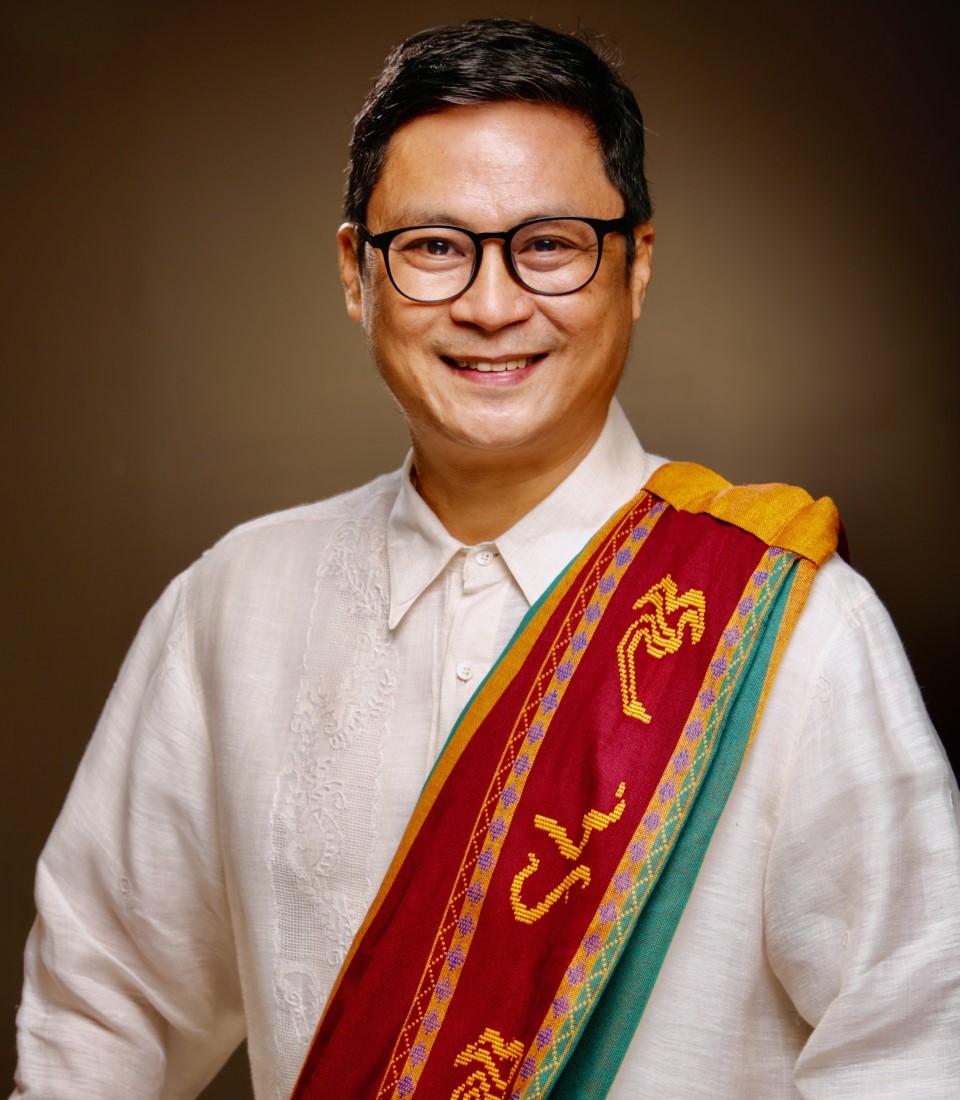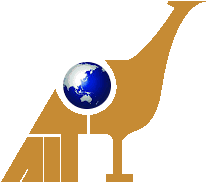
Ramon Benedicto A. Alampay, PhD
Professor
Regenerative tourism; destination development and competitiveness; tourism and gender; consumer behavior in tourism; food and tourism; creative tourismraalampay@up.edu.ph
This material has been reproduced and communicated to you by or on behalf of University of the Philippines pursuant to PART IV: The Law on Copyright of Republic Act (RA) 8293 or the “Intellectual Property Code of the Philippines”. The University does not authorize you to reproduce or communicate this material. The Material may contain works that are subject to copyright protection under RA 8293. Any reproduction and/or communication of the material by you may be subject to copyright infringement and the copyright owners have the right to take legal action against such infringement.
| Year | Bibliograpic Information |
| 2023 | III, B. S. M., Jacinto, G. S., Castro, J. R., Subade, R. F., Alampay, R. B. A., & Cruz, L. J. (2023). Fisheries Management Areas in the West Philippine Sea and Their Heritage Values. Asian Journal of Agriculture and Development, 1. |
| 2018 | Alampay, R. & Mena, M. (2018). Assessing the profile and destination management competencies of Philippine local tourism officers. Paper presented at the 2nd Philippine Research Conference on Tourism and Hospitality. 7 November 2018. Baguio City, Philippines [Research presentation] |
| 2018 | Alampay, R. (2018). Community-based destination management. Presented at the Puerto Princesa City Community-Based Sustainable Tourism Annual Convention 2018. 14 December 2018. Puerto Princesa City, Palawan, Philippines. [Research presentation] |
| 2018 | Alampay, R. (2018). Revisiting Destination Competitiveness Initiatives Using Pearce's Integrated Conceptual Framework. In Proceedings. 24th Asia Pacific Tourism Association Conference. 5 July 2018. Mactan, Cebu. [Research presentation] |
| 2018 | Alampay, R., Mena, M., & Villegas, V. (2018). Tourism circuit planning for subnational tourism development in the Philippines. In: Wang Y., Shakeela A., Kwek A., Khoo-Lattimore C. (eds) Managing Asian Destinations. Perspectives on Asian Tourism. Springer, Singapore. 35-53 |
| 2017 | Teng-Calleja, M., Hechanova, R., Alampay, R., & Franco, E. (2017). A Model for Local Government Transformation. in Hechanova, M. R., Teng-Calleja, M., & Franco, E. (Eds.), Transforming Local Government. (pp. 139-162). Quezon City: Ateneo de Manila University Press. |
| 2017 | Alampay, R. (2017). A proposed framework for measuring local destination competitiveness. Paper presented at the 1st Philippine Research Conference on Tourism and Hospitality. 26 October 2017. Quezon City, Philippines [Research presentation] |
| 2017 | World Tourism Organization (2017). Case 12: Tourism and environmentalism. The case of Palompon, Leyte. in World Tourism Organization and Griffith University. Managing growth and sustainable tourism governance in Asia and the Pacific (pp. 103-110). Madrid: UNWTO. Mena, M. & Alampay, R. (acknowledged as contributing authors) |
| 2017 | Menguito, M.L., & Alampay, R. (2017). From Poverty to Sustainability: The Bohol Experience. in Hechanova, M. R., Teng-Calleja, M., & Franco, E. (Eds.), Transforming Local Government. (pp. 25-44). Quezon City: Ateneo de Manila University Press. |
| 2017 | Alampay, R. (2017). HRD issues, challenges, & opportunities for the tourism industry in the Philippines. Presented at the 43rd ASEAN-Japan Business Meeting. 07 November 2017. Bangkok, Thailand. [Research presentation] |
| 2017 | Alampay, R. (2017). Naga City: Governance for and by the People as a Way of Life. in Hechanova, M. R., Teng-Calleja, M., & Franco, E. (Eds.), Transforming Local Government. (pp. 87-102). Quezon City: Ateneo de Manila University Press. |
| 2017 | Alampay, R. (2017). Tourism as driver of service industry promotion in the Philippines. Presented at the 43rd ASEAN-Japan Business Meeting. 08 November 2017. Bangkok, Thailand. [Research presentation] |
| 2016 | Alampay, R., Avena, R. & Mena, M. (2016). Challenges in measuring sub-national tourism outcomes. Lessons in tourism circuit development from LGSP-LED. Paper presented at the 13th National Convention on Statistics. Philippine Statistics Authority. 04 October 2016. Mandaluyong City, Philippines. [Research presentation] |
| 2016 | Alampay, R. (2016). The Role of LGUs in enabling businesses for sustainable and inclusive tourism growth. Presentation at the Bicol Regional Tourism Summit. 28 November 2016. Naga City, Philippines. |
| 2016 | Teng-Calleja, M., Hechanova, M.R., Alampay, R., et. al. (2016). Transformation in Philippine Local Government. Local Government Studies. 43(1):64-88. |
| 2016 | Teng-Calleja, M., Hechanova, M. R., Canoy, N. A., Franco, E. P., Alampay, E. A., & Alampay, R. B. A. (2016). Transformation and Leadership in Local Government: OR1237. |
| 2015 | Alampay, R. (2015). Investment Opportunities in Local Tourism Destinations. Presentation at the Philippine Business Conference. Philippine Chamber of Commerce and Industry. 26 October 2015. Pasay City, Philippines |
| 2013 | Alampay, R. (2013). Governance for Local Economic Development and Tourism. Plenary presentation at the National Conference on Tourism Governance. Department of Tourism and the University of the Philippines Asian Institute of Tourism. 25 November 2013. Pasay City, Philippines. |
| 2010 | Alampay, R. (2010). Sustainability and Equity, Not Just Growth. An Assessment of the 2004-2010 MTPDP for the Tourism Sector. In The Civil Society Assessment of the 2004-2010 Medium Term Philippine Development Plan. Manila: Caucus of Development NGO Networks (CODE-NGO). |
| 2008 | Alampay, R. & Rieder, L. (2008). Developing Tourism in the Greater Mekong Subregion’s Economic Corridors. Journal of Greater Mekong Subregion Development Studies. 4: 59-76. |
| 2006 | Hechanova, R., Alampay, R, & Franco, E. (2006). Psychological empowerment and performance among Filipino service workers. Asian Journal of Social Psychology. 9, 72–78. |
| 2006 | Alampay, R. (2006). Tourism Investment Policies, Regulations and Incentives in the Greater Mekong Subregion. Research paper prepared for the UN Economic and Social Commission for Asia and the Pacific (UNESCAP) for presentation at the Mekong Tourism Investment Forum in Lao PDR. March 2006. |
| 2005 | "Alampay, R., & Libosada, C. (2005). Developing an Ecotourism Classification Framework for the Philippines. In Alampay, R. (ed.) The Challenge of Sustainable Development for the Philippine Tourism Industry. Manila: Philippine-APEC Study Center Network." |
| 2005 | "Alampay, R., ed. (2005). The Challenge of Sustainable Development for the Philippine Tourism Industry. Manila: Philippine-APEC Study Center Network. |
| 2004 | Mena, M., Chon, K., & Alampay, R. (2004). Discovering the potentials of domestic tourism in Southeast Asia from the perspectives of regional demography. Tourism Recreation Research, 29(2). |
Lorem Ipsum is simply dummy text of the printing and typesetting industry. Lorem Ipsum has been the industry's standard dummy text ever since the 1500s, when an unknown printer took a galley of type and scrambled it to make a type specimen book. It has survived not only five centuries, but also the leap into electronic typesetting, remaining essentially unchanged. It was popularised in the 1960s with the release of Letraset sheets containing Lorem Ipsum passages, and more recently with desktop publishing software like Aldus PageMaker including versions of Lorem Ipsum.
Lorem Ipsum is simply dummy text of the printing and typesetting industry. Lorem Ipsum has been the industry's standard dummy text ever since the 1500s, when an unknown printer took a galley of type and scrambled it to make a type specimen book. It has survived not only five centuries, but also the leap into electronic typesetting, remaining essentially unchanged. It was popularised in the 1960s with the release of Letraset sheets containing Lorem Ipsum passages, and more recently with desktop publishing software like Aldus PageMaker including versions of Lorem Ipsum.
Lorem Ipsum is simply dummy text of the printing and typesetting industry. Lorem Ipsum has been the industry's standard dummy text ever since the 1500s, when an unknown printer took a galley of type and scrambled it to make a type specimen book. It has survived not only five centuries, but also the leap into electronic typesetting, remaining essentially unchanged. It was popularised in the 1960s with the release of Letraset sheets containing Lorem Ipsum passages, and more recently with desktop publishing software like Aldus PageMaker including versions of Lorem Ipsum.
Frequently Asked Questions
Have a question in mind? We listed down some of the Frequently Asked Questions to help and guide you. If you have further questions not covered in this FAQ, please send us an inquiry through daa.ait@up.edu.ph
FAQS
How to apply in the BS Tourism Program?
To be eligible in the BS Tourism Program, you need to pass the UP College Admission (UPCA)/UP College Admission Test UPCAT).
For students who are planning to shift or transfer to the BS Tourism program, you must have completed 30 units of coursework (if you are from other UPD units or other UP campus) or 33 units of coursework (if you are from other college and university)
The documentary requirements can be found here.
For more information and other queries, send an email with your concern to asianinstituteoftourism.upd@up.edu.ph
Are there scholarship offerings for UPAIT students? The graduate program of UPAIT offers the MSTDM scholarship award, with one awardee annually. For other scholarship opportunities for BS Tourism and Graduate Program, visit the UP Diliman Office of Scholarships and Grants Facebook Page: https://www.facebook.com/UPDilimanOSG
The UP AIT Alumni Association also offers an educational assistance in cash to deserving third and fourth year students.
The application process is conducted online. Please ensure that you have read and understood the program details before submitting your application here. Once you have completed the application requirements, you can now proceed to submit your application.
For questions or concerns, please contact the Graduate Program office at aitgradprog.upd@up.edu.phFull-time GDipTDM students, taking a normal load, may complete the degree in three semesters (approximately 1.5 years). The time limit for the completion of all diploma requirements shall be no more than two (2) years starting from the student’s first enrollment in the course and shall include all leaves of absence from the program.
If GDipTDM graduates choose to continue to MSTDM, you must complete an additional 19 units (Plan A, thesis track) or 16 units (Plan B, non-thesis track), which may be taken in two semesters and one mid-year term. The time limit for the completion of the Master’s requirements shall be three (3) years, starting from the student’s first enrollment in the course and shall include all leaves of absence from the program.
Students and prospective applicants are requested to search for available grants or scholarships at the University of the Philippines Office of Scholarships and Student Services.
For list of available scholarships visit the website of the University of the Philippines Office of Student Scholarships.
Contact Us
Get in touch
Please ensure to schedule and coordinate your visit in advance before proceeding to our campus.
Location:
UP Asian Institute of Tourism, Commonwealth Avenue, Diliman, Quezon City 1101
Email:
asianinstituteoftourism.upd@up.edu.ph
Call:
(+63 2) 8 981 8500 extension #2798
AIT Directory:
Visit here

